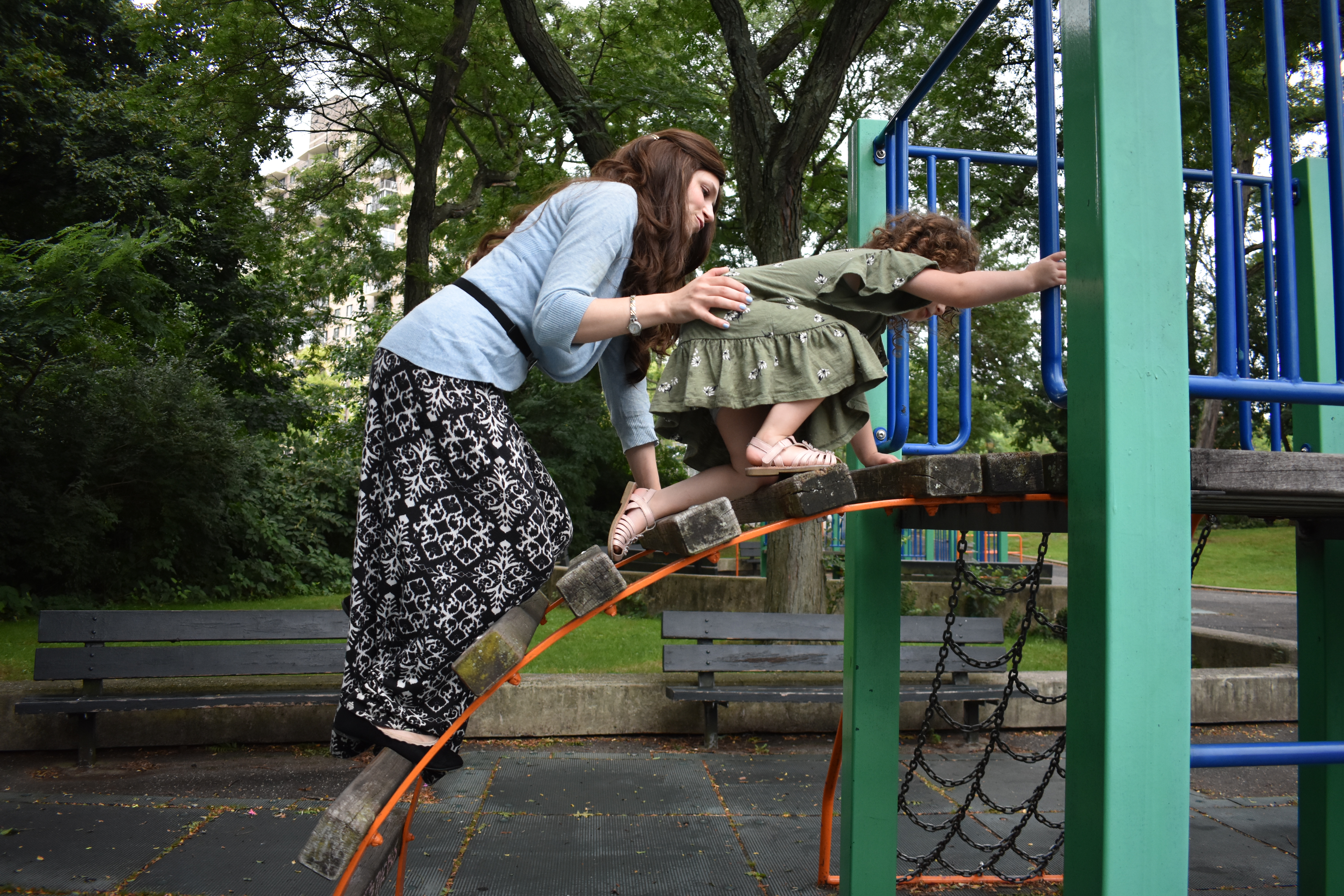
Jewish Parents Need to Helicopter Less
Written by Talia Avrahami
“I am so, so sorry,” my baby daughter’s daycare worker panted between two short breaths. “Bracha was learning to walk, but then fell and slightly bruised her head. We are terribly sorry and will not let it happen again,” she promised. I had just arrived to pick up my 11 month old from daycare.
“Kids will be kids, am I right?” I chuckled at her with a smile, as I picked up Bracha and gave her a kiss.
“You aren’t mad at us?” the daycare worker questioned in a bewildered and almost offended tone.
“Of course not! Part of being an 11 month old is occasionally falling and getting up again,” I cheerily declared.
I left for home. At first, I was confused, but being a morah (teacher) of middle-schoolers in the yeshiva school system, I quickly realised that the daycare worker was probably surprised that I am not a helicopter parent like many American Orthodox Jewish parents. I am a young Orthodox Jewish mother and I care deeply about my daughter (and students), but helicopter parenting over her every move is not beneficial for her and does not reflect the parenting styles of the Torah.
Firstly, it is essential to understand that helicopter parenting — the practice of constantly watching and correcting a child’s every move — is usually well-intentioned. According to a Mead Johnson Nutrition survey, us mothers with babies spend over 1400 hours worrying about them during the first twelve months of their lives. On average, we conduct around 330 internet searches about our babies during their first twelve months. Thus, it follows that we would constantly be on top of our babies’, toddlers’, and children’s every move. It is only natural that we would want to check that our middle-schoolers and high-schoolers have completed every homework assignment each night and that we check into what each of their teachers taught them every day. After all, that’s what a good mother does, right?
However, just because we have an intuitive thought does not necessarily mean that it is the best plan of action. In fact, helicopter parenting children throughout their whole lives has numerous consequences for their social-emotional development.
According to the American Psychological Association, helicopter parenting prevents children from learning how to understand their emotions, how to control anger, and how to deal with stress. Not only does this lead to depression and anxiety, it stops children from building up the confidence and self-esteem necessary to make friends and navigate social situations. It also prevents them from building the organizational skills necessary to academically succeed when they are no longer at home (such as in seminary, yeshiva, or university). Interestingly, this is also taught by the Alter Rebbe in the twelfth chapter of Tanya, where self-discipline and regulation are crowned as essential for a child’s development.
Furthermore, there is additional guidance on parenting in our mesorah (tradition). According to Rabbi Aron Moss of the Chabad-Lubavitch community in Sydney, there are essentially three parenting styles — helicopter parenting, sailboat parenting, and spaceship parenting.
Helicopter parenting is when the parent is involved in every minutiae of the child’s life and spaceship parenting is the exact opposite — when a parent is almost completely removed from a child’s activities.
Younger children need more watching; however, as children age, they need more space. That’s where sailboat parenting comes into play. Sailboat parenting is somewhere in between helicopter parenting and spaceship parenting. According to Rabbi Moss, this is the example we are given by Hashem. ”[Hashem] is not breathing down our necks; he breathes wind into our sails.”
This is the example of parenting we also find in the Tanakh (Bible). Moshe Rabbeinu and Tzipporah were sailboat parents. Avraham Avinu and Sarah Imeinu were sailboat parents. In Bereshit 12, Hashem commands Avraham to venture out on his own. A core lesson of this perek (chapter) is that Hashem sometimes wants us to navigate difficult situations ourselves and learn from those experiences. Even though Hashem is guiding Avraham — like a sailboat parent — He is not dictating his every move.
As long as our children are generally progressing well, we only occasionally need to check that they did their homework. We only occasionally need to ask what they did with their friends at the park. Let’s take the wisdom of both modern science and our mesorah to better trust our children, as sailboat parents.

Helicopter parenting children throughout their whole lives has numerous consequences for their social-emotional development.
Related Articles
Related
Kids & Technology
The scene is familiar. You try speaking to your kid and hear a grunt in response, you turn around and you see that they are totally engrossed in their device. You call them again, again you hear a grunt. Finally you get super close to them and say, “It’s time to...
Evaluating Single-Sex and Co-Ed Schools
Winter is ending and spring is beginning; the time for choosing a Jewish day school is near and one of the biggest questions that parents and students face is whether to enroll in a single-sex or a co-ed school. Boys’ schools, girls’ schools, and co-ed schools have...
8 Keys to Healthy Communication with Your Kids
Ruti's Remedies Dear Ruti, I hear parents (especially young parents) say all the time “I want to have the kind of relationship with my kid that they will tell me if they did something wrong.” I think this is true of all parents (including myself). My question is: Is...
